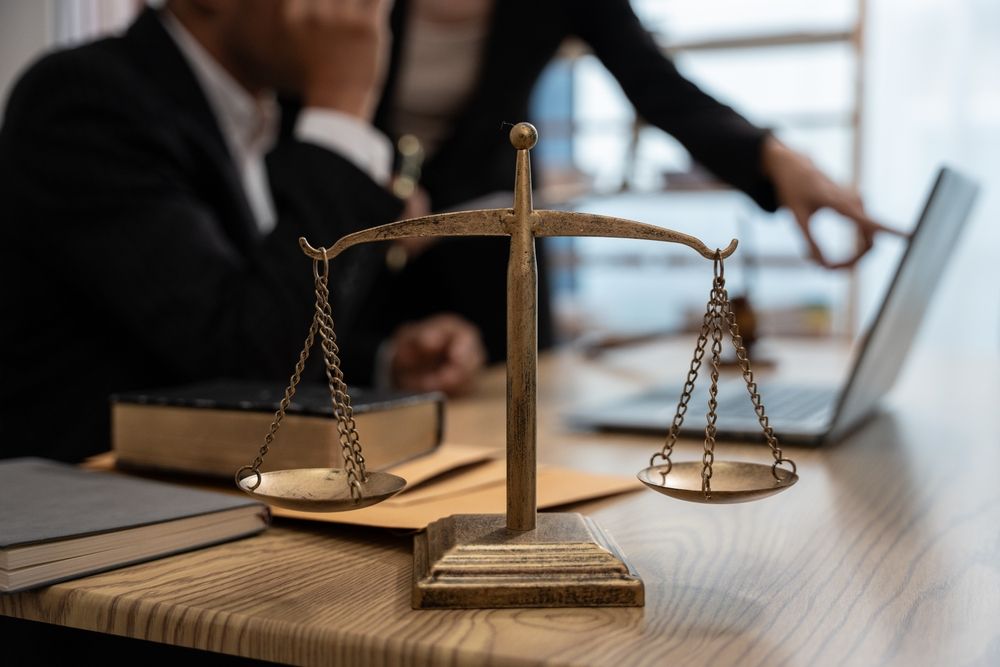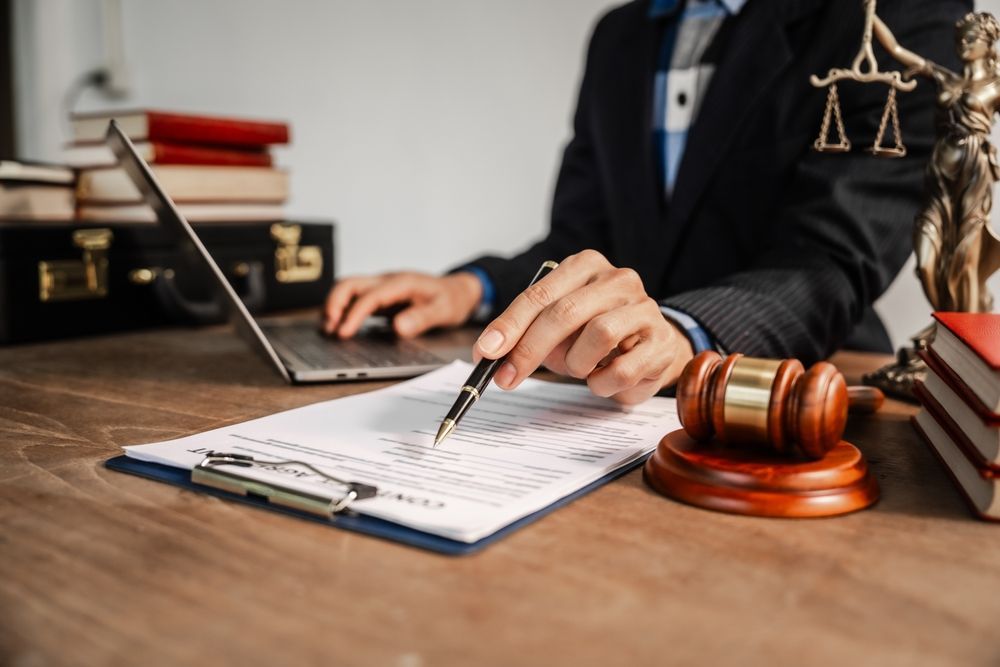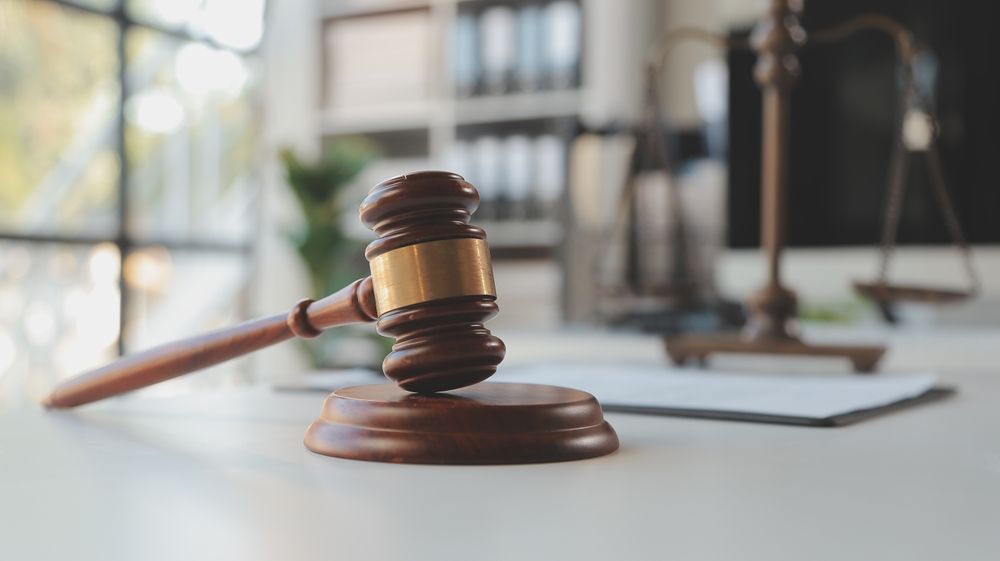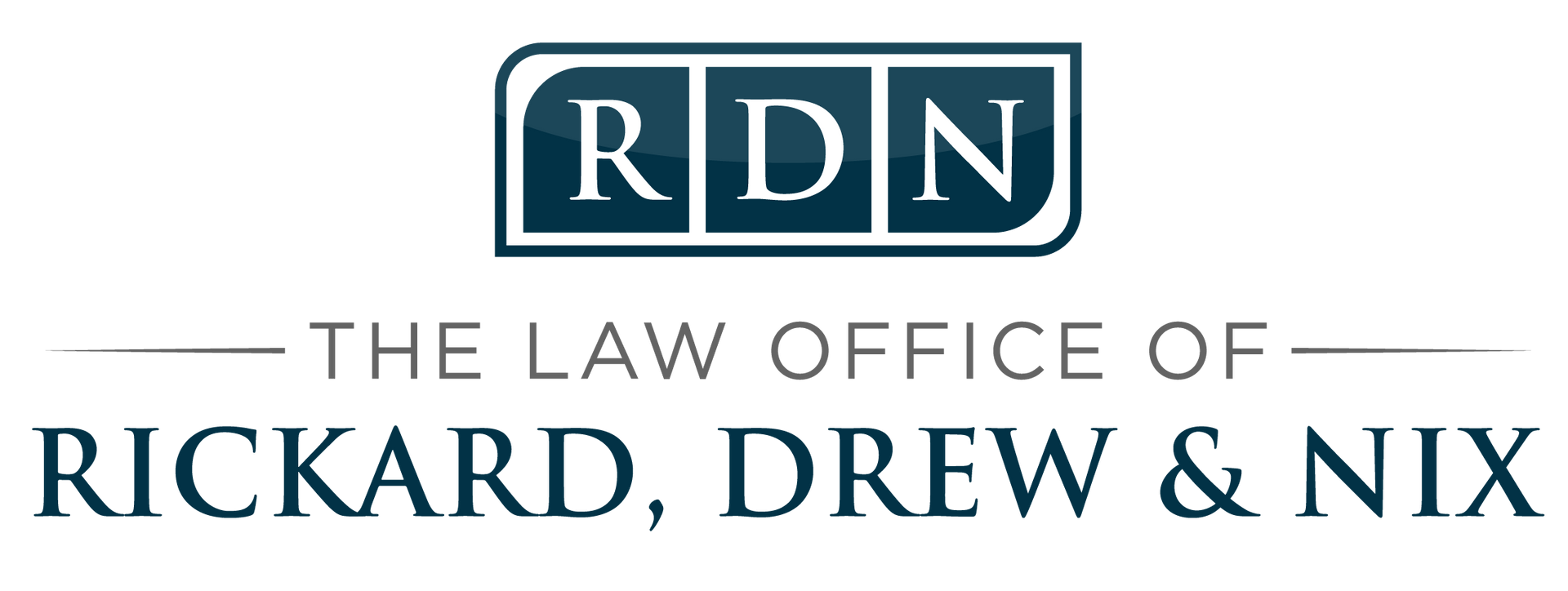Protect Your Legal Rights After a Car Accident in Atlanta
In the first few minutes after a car or motorcycle crash, you're completely disoriented, wondering what just happened. Your vehicle may be undrivable and you may have injuries, possibly severe. It's difficult to think clearly, but what you do next can significantly affect your future. Critical steps must be taken to guarantee rightful compensation and protect your rights. If you're able, follow these steps carefully and contact a legal professional immediately to help guide you through the claims process. It can make a big difference in the outcome of your claim and recovery.
In the chaotic moments following a car accident, emotions run high, and clear thinking can be impaired. Taking immediate steps to protect your well-being and legal rights is crucial. This article guides you through the essential steps after a car accident in Atlanta. Whether you have sustained injuries or witnessed a severe crash, these guidelines outline what to do, from assessing injuries and securing emergency medical services to gathering critical information for your insurance company and attorney. Acting quickly can be the difference between successfully preserving evidence for a wrongful death claim, car accident case, or a personal injury claim and losing precious details that determine compensation for property damage, pain and suffering, and medical expenses.
Understanding that law enforcement, medical providers, and attorneys all require timely and accurate information, this guide provides a clear pathway to follow immediately after an auto accident. The steps include checking for injuries, contacting emergency services, documenting the scene, notifying police, and seeking medical and legal assistance. In addition, following car accidents can guarantee that best practices are observed throughout the process. The following sections will familiarize you with terms such as "insurance information," "car accidents," "Atlanta car accident," and "accident lawyer Atlanta," focusing on every necessary measure to be taken during the crucial early moments post-crash. This article serves as both an essential legal resource and a practical checklist for anyone involved in an accident on Atlanta roads.
The subsequent sections provide detailed action plans grounded in legal best practices and backed by professional expertise. Each step is critical in the chain of events that protect your rights and build a strong foundation for any future legal proceedings.
Immediately Check for Injuries and Secure Emergency Help
In the immediate aftermath of a car accident, the first step is to check if anyone is injured and secure emergency help without delay. Safety and health are paramount; therefore, quickly surveying yourself, your passengers, and any others involved in the crash is critical. Ask questions like “Can you move?” and “Are you feeling any pain?” to determine the severity of injuries. Immediate evaluation will not only allow you to call for necessary medical assistance but also help provide a clear record of injuries sustained, which can be crucial in later claims regarding personal injury and wrongful death.
Assess Personal Harm and That of Involved Parties
The assessment of personal harm should be conducted as soon as possible. This involves checking each individual for visible injuries as well as assessing shock or internal pain that may not be immediately apparent. Even if someone appears unharmed, internal bleeding or traumatic shock can set in minutes after the impact. It is advisable that if you suspect any form of injury, even minor headaches, neck pain, or dizziness, you should still consider seeking immediate medical evaluation. Involving all parties, including passengers and drivers from the other vehicle, means anyone who might have sustained an injury is accounted for. This detailed documentation of injuries can later serve as a key piece of evidence when pursuing compensation for medical expenses or wage loss, making your report a critical asset in proving negligence, comparative fault, or even potential punitive damages.
Contact Emergency Services Without Delay
Once you have assessed for injuries, the next step is to call emergency services immediately, even if the accident appears minor. Dialing 911 in Atlanta facilitates a police officer arriving promptly at the scene to document the accident. When contacting emergency services, speak calmly yet clearly, providing essential details such as the location, nature of the accident, potential injuries, and the number of vehicles involved. Keep a record of the time you made the call; this could be essential for insurance claims and legal procedures. Delay in contacting emergency responders can sometimes exacerbate injuries or result in witness evidence being lost. Furthermore, the police report that is generated during this call is a crucial document for both legal processes and any subsequent settlement negotiations with your insurance company.
Create a Safe Environment at the Accident Scene
After confirming that all injured parties receive immediate care, it is imperative to create a safe environment at the accident scene. Reducing further risks of harm not only protects lives but also preserves the integrity of the evidence. The scene of the accident may pose additional hazards, such as oncoming traffic, potential fires, or unsecured vehicles that could move unexpectedly. By controlling the environment as best as possible, you lay the groundwork for effective documentation and prompt actions that follow legally and medically.
Relocate to a Secure Area if Circumstances Permit
If the accident occurs on a busy road or freeway, it’s essential to move vehicles and injured persons, if possible, to a safe area away from traffic. This might involve moving to the shoulder of the road or an adjacent parking lot if conditions allow for safe travel. Relocating helps prevent further accidents and minimizes the risk of additional injuries. If you are able to safely exit the vehicle, direct others to do so as well. However, if there are significant injuries or the vehicle is in an unstable position, remain inside until emergency services advise otherwise. Always use hazard lights and reflective warning devices to alert surrounding drivers. Relocating to safety helps emergency responders to quickly access the scene without risking their own safety, thereby facilitating a smoother process of obtaining statements, documenting the accident scene, and collecting witness information.
Reduce Risks of Further Harm at the Scene
Once a secure location is established, take steps to mitigate any further risks. Use traffic cones, flares, or any available warning signs to alert oncoming traffic of the accident scene. If available, set up reflective triangles or hazard signs behind your vehicle. This act not only secures your safety but also the safety of any bystanders. Additionally, keep a watchful eye for potential hazards like leaking fuel or erratic drivers who might delay coming to a complete stop or notify responders. Confirming that the area is safe also reduces the impact of subsequent road accidents that could complicate legal claims or witness testimonies. Accident victims and witnesses need to secure the area, which supports the thorough documentation of the accident details and creates an environment where the integrity of evidence is maintained.
Promptly Notify Law Enforcement
Notifying law enforcement promptly is a critical step after handling immediate safety concerns. When you contact the police, you are not only securing proper documentation of the accident, but you are also legally protecting your rights. The police’s involvement plays a significant role in determining liability, and their report stands as a crucial piece of evidence in any ensuing legal actions. For individuals seeking justice for a car wreck, wrongful death claim, or other personal injury claims, an accurate police report can validate details such as injury assessments, statements, and the time and conditions of the accident.
Report the Incident Clearly and Factually
When law enforcement arrives, provide a clear and factual recounting of what occurred. It is important to relay the details without speculating or conjecturing about the cause of the accident. Focus on concrete facts such as the sequence of events, the location of vehicles, directions of travel, and observable damages. Mention specifics like the activation of airbags, the point of impact, and whether any warnings, like brake lights or horn sounds, were evident prior to the collision. Maintaining a calm and fact-based demeanor establishes your credibility and supports your later claims with key insurance companies. This transparency helps in cases where there might be disputes over fault, especially in Atlanta car accidents where comparative negligence may come into play. A fully detailed police report builds a robust framework that strengthens both your evidence for a lawsuit and any potential settlement negotiations.
Obtain an Official Report Number From Responding Officers
Before the police leave the scene, obtain an official report number. This report number is not only an essential reference for any future communications with law enforcement but also a vital piece of documentation for insurance claims. The report number can facilitate smoother processing of claims by the insurance company and also lays a foundation for further legal proceedings if needed. Recording this number, along with the names and badge numbers of the responding officers, is part of a necessary approach to preserving evidence. This step is fundamental because failing to obtain a report number might result in a delay or discrepancy when filing your personal injury or wrongful death claim. It is recommended that you write this number down immediately on your phone or a notepad provided by law enforcement. Early documentation of this data will prove invaluable during interviews with your attorney and negotiations with insurance providers.
Record Essential Information and Document the Scene
Accurately recording essential information at the scene of the accident is paramount to securing the evidence needed to support any legal or insurance claim. Photography, video recordings, and written notes detailing the accident help maintain an unalterable record of the circumstances surrounding the event. This documented evidence is extremely useful when determining liability, substantiating the extent of damage, and verifying injury reports. It also plays a crucial role in cases of disputed fault or in instances where police reports might be incomplete. A detailed record reinforces the facts of the incident and strengthens your position when negotiating settlements with insurance companies or presenting evidence in court.
Collect Contact Details and Visuals of Damages
Begin by gathering the contact information of all parties involved, as well as witnesses present at the scene. This includes phone numbers, names, addresses, and insurance details. Taking clear photographs of the accident scene from multiple angles is vital. Focus on capturing the damage to all vehicles involved, any skid marks on the road, and any debris or hazardous conditions that contributed to the incident. The images you collect serve as objective evidence that can validate your claim for property damage, medical expenses, and other losses. It is advisable to make the lighting sufficient and get images in high resolution so that details such as scratches, dents, and broken glass are visible. These photographs might later be compared with the police report and witness testimonies, creating a comprehensive record of the accident that is critical in supporting your claims for compensation or pursuing a wrongful death claim.
Capture Accurate Details From Witnesses
Witnesses are often the unsung heroes of accident documentation. Politely ask them for their full name and contact number, and encourage them to write down their statements as soon as possible. Their independent testimonies can prove key in establishing the sequence of events and corroborating your account of the accident. Detailed witness statements that note specific observations—such as the behavior of the drivers before the crash, the road conditions, and the speed of the vehicles—can significantly strengthen your case. This testimony not only aids your insurance claim but also provides uncontested evidence in any legal litigation that follows. It is beneficial to record the exact words of the witnesses, so any potential disputes about the facts are minimized. The combined documentation of visual evidence, detailed notes, and witness statements creates a formidable record that supports your legal rights in any subsequent proceedings related to the accident.
Contact Medical Providers and Inform Your Insurance Firm
After the initial safety steps and documentation, contacting medical providers and notifying your insurance firm is imperative. Immediate medical evaluation helps any hidden injuries be diagnosed early, which is crucial for both your health and any liability claims. Simultaneously, informing your insurer creates an official record of the incident, initiating the process of filing a claim regarding property damage, medical treatment costs, and potential lost wages caused by the accident. Detailed and timely communication with both healthcare professionals and your insurance company is vital because delays or omissions might adversely affect your legal rights and the eventual resolution of your claim.
Seek Immediate Medical Evaluation and Keep Thorough Records
Even if injuries seem minor at first, obtaining medical attention promptly is essential. Some injuries, such as whiplash, internal bleeding, or soft tissue damage, may not be immediately apparent. A thorough medical evaluation can reveal such injuries, allowing for immediate treatment and long-term documentation through medical records. These records provide invaluable evidence that corroborates the extent of your injuries and their direct connection to the car accident. It is important to maintain an organized file containing doctor’s notes, diagnostic imaging results, prescriptions, and bills. Such detailed records support your claim when negotiating settlements for pain and suffering, as well as other damages. Peer-reviewed studies, such as one published in the Journal of Trauma and Acute Care Surgery, have confirmed that prompt medical evaluation after trauma significantly improves recovery outcomes and mitigates long-term health complications. These studies underscore the importance of immediate action after an accident for both health and legal claims.
Alert Your Insurer About the Incident Promptly
Contact your insurance company as soon as possible after the accident. Providing a comprehensive and accurate account of the incident, including photographs, police reports, and witness statements, is essential to support your claim for damages. When speaking with your insurer, relay all critical details, such as the time, location, and sequence of events leading to the accident. Request written acknowledgment of your claim submission to avoid disputes later on. Timely notification to your insurer not only fulfills the terms of your insurance policy but also activates the claims process, allowing for a thorough investigation of the accident. This step is a core part of protecting your rights, as any delay or inconsistency in communication may compromise your case. Insurers often have specific time frames in which claims must be reported, and failing to meet these deadlines could potentially impact your eligibility for compensation. Clear documentation and early communication help prevent disputes and make all parties aware of the circumstances surrounding the accident.
Secure Specialized Legal Assistance to Protect Your Rights
After addressing immediate safety, documentation, and medical procedures, securing specialized legal assistance is crucial for preserving your legal rights. Consulting with an attorney experienced in Atlanta car accidents helps you successfully manage insurance claims, personal injury litigation, or wrongful death claims with professional guidance. Legal experts can advise you on the statute of limitations, comparative negligence rules, and specific local laws that might impact your claim. They also assist in negotiating settlements, representing you in court, and minimizing the risk of punitive damages or other adverse outcomes. Engaging legal representation early in the process safeguards the evidence you have collected and represents your best interests.
Consult With an Attorney Experienced in Atlanta Car Accidents
It is imperative to consult a personal injury attorney who specializes in car accident cases in the Atlanta area immediately after the incident. An experienced lawyer can help guide you through the intricacies of the legal system and inform you of your rights under Georgia law. They will assess your case, advise you on which additional evidence may need to be obtained, and help determine the full extent of damages, including property damage, medical expenses, lost wages, and pain and suffering. An attorney’s early involvement ensures that critical steps, such as preserving evidence or obtaining corrective witness testimonies, are handled professionally. This legal consultation is essential for establishing a solid foundation for a wrongful death claim or a comprehensive personal injury claim if medical records and witness statements require precise context in legal proceedings. Attorneys often work on a contingency fee basis, which means you have little upfront cost while they strive to secure maximum compensation on your behalf.
Preserve Evidence and Understand Your Legal Rights Under Regional Laws
Securing and preserving evidence is a fundamental step in any accident case, and your attorney will emphasize the importance of this practice. This includes keeping all medical records, photographs, police reports, and witness statements intact. The legal process in Atlanta car accidents places significant emphasis on clear evidence to prove negligence and fault. Your attorney will guide you on how to safeguard all these materials and advise on the documentation of lost wages, medical treatments, and any long-term care needs. Understanding your legal rights under Georgia law, including how comparative negligence may affect your claim, is critical. This prepares you for any negotiation with insurance companies and that all statements or additional personal accounts are properly recorded. Your lawyer will also discuss potential settlement structures—be it lump sum or structured payments—and advise on the best course of legal action that protects your interests in this complicated process.
Frequently Asked Questions
Q: What should I do immediately after a car accident in Atlanta?
A: Immediately assess for injuries, call 911, secure the scene, document the accident details, and notify both law enforcement and your insurance company. Then, seek medical and legal help to protect your rights.
Q: Why is it important to document everything after an accident?
A: Detailed documentation, including photographs, witness information, and police reports, is crucial for supporting claims for property damage, injuries, and wrongful death. It serves as vital evidence in both insurance negotiations and court cases.
Q: How soon should I contact my attorney after a car accident?
A: It is recommended to consult with an attorney as soon as possible after the accident. Early legal consultation means your evidence is preserved, your statements are accurate, and you can understand Georgia’s personal injury laws.
Q: What role do witness statements play in an accident claim?
A: Witness statements provide impartial evidence that corroborates your account of the accident. They are critical in establishing the sequence of events, the actions of both parties, and supporting your case during legal proceedings.
Q: How does immediate medical evaluation affect my legal claim?
A: Immediate medical evaluation helps document any injuries that may not be apparent right away and records all health effects. Medical records serve as key evidence in pursuing compensation for injuries, lost wages, and pain and suffering.
Q: What is the significance of obtaining an official police report number?
A: The official police report number is essential as it allows you to access the formal report detailing the accident. This report strengthens your insurance claim and legal proceedings by providing verified documentation of the incident.
Q: Can legal assistance help with insurance negotiations post-accident?
A: Yes, an experienced attorney can help negotiate with insurance companies, so all aspects of your damages like medical bills, property damage, and compensation for pain and suffering, are accurately evaluated and maximized.
Final Thoughts
Following a car accident in Atlanta involves a series of critical steps to safeguard your physical well-being and legal rights. Quick actions, from assessing injuries and securing safety to documenting the accident and seeking legal guidance, are essential for building a strong case for compensation. Preservation of evidence and timely consultation with qualified attorneys can greatly affect the outcomes of your claim, whether it involves property damage or a wrongful death claim. Taking these steps protects your rights and paves the way for a smoother legal process and eventual recovery of damages.

Attorney Jessica Nix, Managing Partner
Jessica Nix is Managing Partner and a Personal Injury Attorney at the Law Office of Rickard, Drew & Nix in Atlanta, with more than 10 years of experience representing injury victims in courts across Metro Atlanta. She graduated cum laude from the University of Georgia School of Law, where she served as an editor of the Journal of Intellectual Property Law. Jessica is admitted to the State Bar of Georgia, is a member of the Georgia Trial Lawyers Association, and was named a Georgia Super Lawyers Rising Star for Personal Injury from 2017 to 2019. To speak with the Law Office of Rickard, Drew & Nix, schedule a free consultation today.



